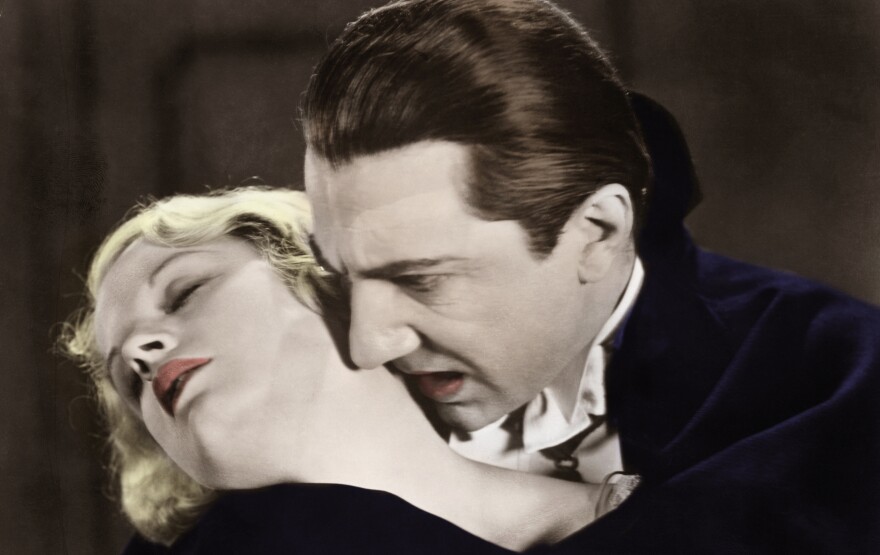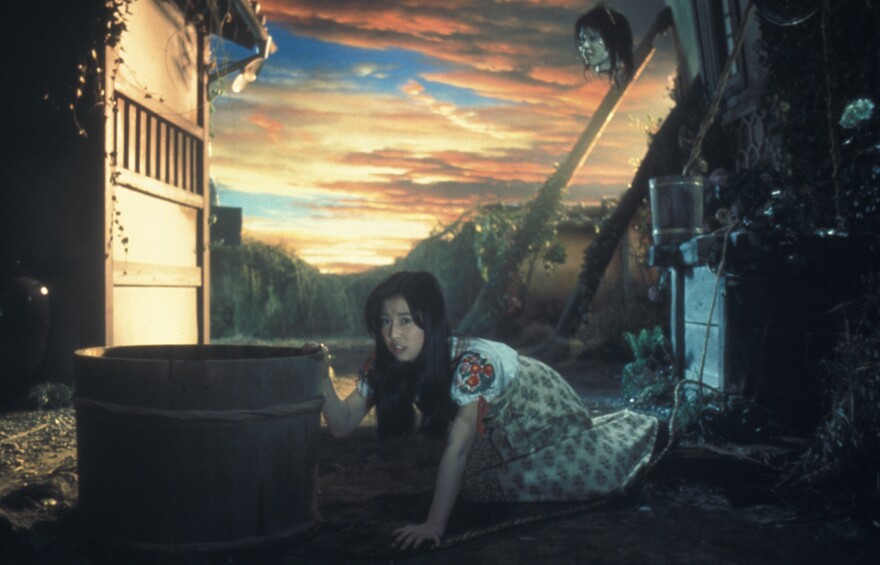Halloween can hurt, a little.
It's a harvest holiday that marks times of transition. But when so many Americans are already feeling uncertain and unstable — and in mourning — the traditional celebration of the macabre can feel a little, well, off.
So let's consider something radical: A warm and fuzzy Halloween, via Hollywood. Horror movies for 'fraidy cats are a long and underappreciated tradition rooted deeply in film history. Think of those great old Universal horror classics of the 1930s. Frankenstein, with Boris Karloff! Dracula with Bela Lugosi! Terrifying monsters for audiences seeking distraction from the Great Depression. But today? Not even a little scary!

Anything starring Vincent Price. Anything directed by Tim Burton. Horror-lite is the uncanny space where indie film and mainstream cinema uneasily coexist, where family-friendly rubs against the subversive. It doesn't have to be Squid Game all the time. The softer side of horror isn't a bad place to be.
Horror-lite creeps onto screens in the form of beloved cult classics. The Rocky Horror Picture Show. Attack of the Killer Tomatoes. The Little Shop of Horrors. (Be sure to check out the original 1960 version, filmed in less than a week and featuring an impossibly young Jack Nicholson as a pain-loving dental patient.)
As a genre, it's hard to argue with the vibrant robustness of horror-lite. Take Tremors.
Since the original 1990 film, the franchise has spawned six sequels (okay, mostly straight to video) based on what's essentially an old- school creature feature about rural Nevadans terrorized by a monster they call the Graboid. (Actor Michael Gross has appeared in every single Tremors iteration; you can watch him express his feelings about this unexpected side hustle in a documentary on Youtube titled Tremors: Making Perfection.)
Last year, when things felt really scary in October 2020, Weekend Edition Sunday asked me to put together a list of not-so-scary scary movies. This year, upon request, a revisit.
House

House, a 1977 Japanese haunted house movie that might be scary if it wasn't so flagrantly silly. Directed by the esteemed auteur Nobuhiko Obayashi and recently re-packaged by none other than the Criterion Collection, House features a group of schoolgirls fighting off a possessed futon, a finger-chomping grand piano and a flying severed head with a taste for biting bottoms. Given the dated, over-the-top special effects and the entire absurdity of the enterprise (think early John Waters), it would take a lot of effort to really be frightened by House. It's safe to say you will never see anything else like it.
M
M, a 1931 movie more famous than popular these days. Credited as being the very first serial killer movie, M stars a very, very young Peter Lorre whistling through Berlin as a depraved child-murderer. Director Fritz Lang pioneered, in M, innovations that remain basic moves in horror cinematography : the camera hiding in the bushes and stalking the victims. M remains truly chilling without a drop of blood being spilled or a second of graphic violence – it's all about the unseen, the evil lurking just out of sight. Because it also touches on themes like the rise of fascism, the power of mobs, privacy and hysteria around missing children, M also feels completely relevant.
Warm Bodies
Warm Bodies is a zombie movie for people who think they hate zombie movies. Romeo isn't just bleeding in this 2013 zombie riff on Shakespeare, he's undead. A smart and surprisingly sweet-hearted romance, Warm Bodies stars Nicholas Hoult, before X-Men and Mad Max made the actor a major heartthrob. He plays a zombie teenager in love with a human survivor of the apocalypse. His Juliet is holed up with a bunch of heavily armed vigilantes, including her dad, played by John Malkovich, who tries to convince her that any relationship with a zombie boy is doomed.
The Devil's Backbone
The Devil's Backbone might be the scariest of the movies listed here. An early Gothic fairytale by director Guillermo De Toro (best known for Pan's Labyrinth and The Shape of Water), the 2001 film is perfect for fans of sharp political allegories and engrossing foreign films. Taking place in a rural orphanage during the Spanish Civil War, The Devil's Backbone plays with familiar tropes such as motherless boys and ghosts, and adds sun-shattered landscapes and a giant, unexploded missile perched precariously in a courtyard, evoking both Charles Dickens and Stanley Kubrick at their absolute creepiest.
Copyright 2021 NPR. To see more, visit https://www.npr.org.




